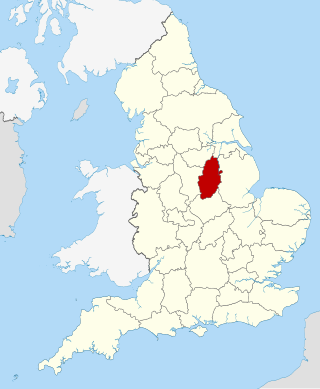Related Research Articles
A constable is a person holding a particular office, most commonly in criminal law enforcement. The office of constable can vary significantly in different jurisdictions. A constable is commonly the rank of an officer within the police. Other people may be granted powers of a constable without holding this title.

The Commissioner of Police of the Metropolis is the head of London's Metropolitan Police Service. Sir Mark Rowley was appointed to the post on 8 July 2022 after Dame Cressida Dick announced her resignation in February 2022.
Chief constable is the rank used by the chief police officer of every territorial police force in the United Kingdom except for the City of London Police and the Metropolitan Police, as well as the chief officers of the three 'special' national police forces, the British Transport Police, Ministry of Defence Police, and Civil Nuclear Constabulary. The title is also held by the chief officers of the principal Crown Dependency police forces, the Isle of Man Constabulary, States of Guernsey Police Service, and States of Jersey Police. The title was also held, ex officio, by the president of the Association of Chief Police Officers under the Police Reform Act 2002. It was also the title of the chief officer of the Royal Parks Constabulary until this agency was disbanded in 2004.
A chief of police (COP) is the title given to an appointed official or an elected one in the chain of command of a police department, particularly in North America. A chief of police may also be known as a police chief or sometimes just a chief, while some countries favour other titles such as commissioner or chief constable. A police chief is appointed by and answerable to a state or local government.

Avon and Somerset Police is the territorial police force responsible for law enforcement in the five unitary authority areas of Bristol, Bath and North East Somerset, North Somerset, Somerset, and South Gloucestershire in South West England.

The City of Glasgow Police or Glasgow City Police was the police covering the city and royal burgh of Glasgow, from 1800 to 1893, and the county of city of Glasgow, from 1893 to 1975. In the 17th century, Scottish cities used to hire watchmen to guard the streets at night, augmenting a force of unpaid citizen constables. On 30 June 1800 the authorities of Glasgow successfully petitioned the British Government to pass the Glasgow Police Act establishing the City of Glasgow Police. It served Glasgow from 1800 to 1975, when it was amalgamated into Strathclyde Police.

Ian Warwick Blair, Baron Blair of Boughton, is a British retired policeman who held the position of Commissioner of Police of the Metropolis from 2005 to 2008 and was the highest-ranking officer within the Metropolitan Police Service.

ACT Policing is the portfolio of the Australian Federal Police (AFP) responsible for providing policing services to the Australian Capital Territory (ACT). The Australian Capital Territory Police was an independent police force responsible for policing the ACT until 19 October 1979, when it was merged with the Commonwealth Police to form the AFP.

Warwickshire Police is the territorial police force responsible for policing Warwickshire in England. It is the second smallest territorial police force in England and Wales after the City of London Police, with only 823 regular officers as of September 2017. The resident population of the force area is 554,002.

Nottinghamshire Police is the territorial police force responsible for policing the shire county of Nottinghamshire and the unitary authority of Nottingham in the East Midlands area of England. The area has a population of just over 1 million.

North Yorkshire Police is the territorial police force covering the unitary authorities of North Yorkshire and the City of York in northern England. As of September 2018 the force had a strength of 1,357 police officers, 127 special constables, 192 PCSOs and 1,072 police staff. Of the 43 territorial police forces in England and Wales, the force has the 3rd largest geographic area of responsibility whilst being the 15th smallest force in terms of police officer numbers.

Sir Paul Robert Stephenson is a British retired police officer who was the Metropolitan Police Commissioner from 2009 to 2011.

The West Vancouver Police Department (WVPD) is the municipal police force for the district of West Vancouver, British Columbia, Canada.

The Police Act 1964 was an Act of the Parliament of the United Kingdom that updated the legislation governing police forces in England and Wales, constituted new police authorities, gave the Home Secretary new powers to supervise local constabularies, and allowed for the amalgamation of existing forces into more efficient units.

Sir Robert Mark was a senior British police officer who served as Chief Constable of Leicester City Police, and later as Commissioner of the Metropolitan Police from 1972 to 1977.
Liverpool Parks Police was a police force maintained by the Corporation of Liverpool to police the parks and open spaces owned by the city. The first record of "park constables" in Liverpool is from 1832, although members of the force were not sworn in as constables in their own right until 1882. The force was disbanded in 1972.
Plymouth City Police was the city force for Plymouth, Devon, from 1928 to 1967. The force’s title was conferred upon it when the borough of Plymouth achieved city status in 1928.
The 1928 New Year Honours were appointments by King George V to various orders and honours to reward and highlight good works by citizens of the United Kingdom and British Empire. They were announced on 30 December 1927.
References
- ↑ HMIC Profile, justiceinspectorates.gov.uk. Accessed 25 January 2023.
- ↑ Hansard